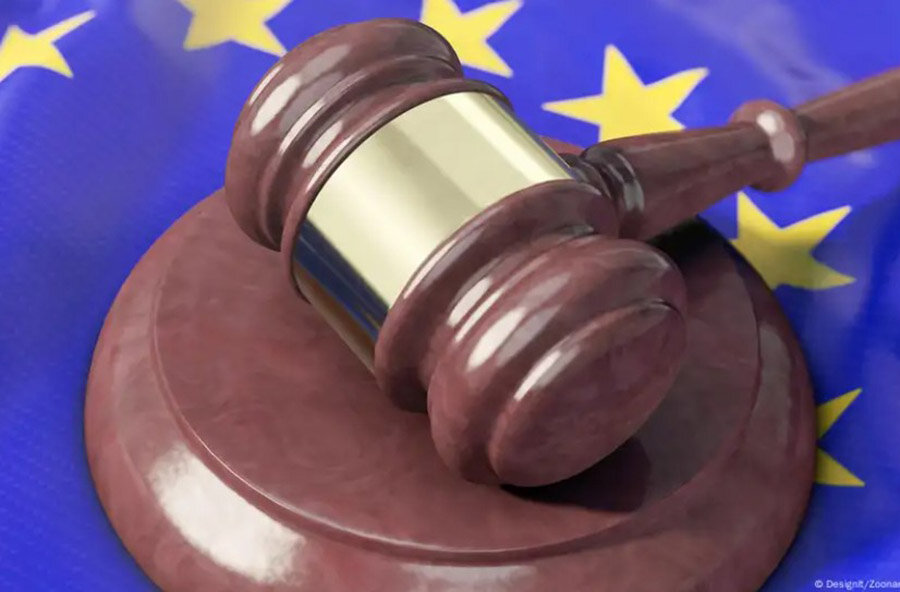European Court Rules to Ban the Export of Euros to Russia for Medical Treatment Payment

The European Union Court of Justice in Luxembourg has ruled that the export of cash currency from the EU to Russia for the payment of private medical services does not fall under the allowed exceptions. The decision, made on April 30, 2025, confirms that the existing sanctions prohibiting this action are valid, as reported by DW portal.
The case was initiated based on a matter referred to the court by a German court. A Russian citizen tried to import around €14,800 to Russia for the payment of infertility treatment in a private clinic, as well as post-operative care following cosmetic surgery. She stated that the funds were meant for her personal medical expenses and had been withdrawn in cash when closing an account at a German bank. During inspection at Frankfurt Airport, the sum was confiscated, except for €1,000, which was left for her immediate needs. This case prompted the German court to request clarification on the interpretation of existing exemptions under the sanctions regime.
It is important to note that the ban on the export of cash currency to Russia was introduced in March 2022 and is enshrined in Article 5i of EU Council Regulation No. 833/2014. This regulation prohibits the sale, supply, transfer, or export of banknotes in EU currencies to Russia, including individuals, legal entities, the Russian government, and the Russian Central Bank. Exceptions are made only for amounts necessary for personal use of travelers and their close relatives, as well as for official purposes by diplomats and international organizations. The court emphasized that the export of currency for medical treatment, including dentistry, hormone therapy, and plastic surgery, does not qualify as necessary for personal use, and therefore falls under the sanctions ban.
The EU Court's ruling is in line with the ongoing enforcement of the policy. One of the first public cases following the ban occurred in August 2022 at the Finnish-Russian border. "Fontanka" reported that a St. Petersburg resident, Yuri, returning from Europe through the Vaalimaa-Torfyanka checkpoint, declared carrying €1,390. Finnish customs officers seized the entire amount, citing the ban. He was offered two options: either transfer the money to someone staying in Finland or receive it back upon re-entry. The notice issued stated that the ban applies to all amounts in euros, even if they do not require mandatory declaration.
Around the same time, Finnish customs officers seized €8,000 from another Russian national with an EU residence permit. Finnish authorities stressed that currency is subject to confiscation regardless of the amount if it is directed to Russia. On Telegram, Russian nationals reported dozens of similar incidents, with one participant posting a seizure report for €9,400. A woman recounted that she and her husband only had €400, but they were advised to return to Finland and spend the money there, which they did. There were also instances where people declaring amounts up to €300 did not face problems.
In the Facebook group "Narva-Ivangorod Border," there was a report describing a case where travelers were advised to exchange €1,000 for rubles or dollars at a currency exchange point before continuing their journey. Since 2023, Estonia has strengthened border control. According to the Tax and Customs Department, 96% of detected violations involve attempts to carry cash euros. Currency is often hidden under clothing, as in the case of one Russian woman who tried to smuggle €6,000 this way. Estonian border guards explained that even small sums are subject to the full ban. However, the export of dollars, rubles, and other currencies from the EU to Russia remains unrestricted.
According to Reuters, many Russians circumvent the EU and US bans using alternative logistics and barter schemes. From March 2022 to December 2023, at least $2.27 billion in cash, mostly through Turkey and the UAE, was imported to Russia. In comparison, the export of currency from Russia during the same period was minimal, totaling only $98 million in cash. This is the result of restrictions introduced by the Russian Central Bank to protect the ruble immediately after the full-scale war in Ukraine began.
The largest declarant for cash importation was the little-known company Aero-Trade, providing duty-free services at airports. Since March 2022, it has processed 73 deliveries of cash worth $20 million each, totaling approximately $1.5 billion, delivered through Domodedovo Airport. In most cases, Aero-Trade acted solely as a declarant. The source or recipient of the cash was not specified in the customs declarations. In one case, a shipment containing €20 million was registered under the company Yves Rocher Vostok, but the French corporation publicly denied involvement, calling the data erroneous. Aero-Trade also claims it does not engage in currency importation. The company's owner, Artem Martyniuk, questioned the accuracy of customs data and declined to comment.
A significant portion of the currency flows was linked to deliveries of precious metals. Russian banks imported over $580 million in exchange for gold and silver exports. Vitabank, for instance, received $64.8 million in cash from the Turkish company Demas Kuyumculuk while sending metals worth $59.5 million to it. A source familiar with Demas' operations explained that the company could not make payments via bank transfers due to sanctions but was required to fulfill contracts with Russian suppliers signed before February 2022. Cash deliveries became the only way to honor these obligations. Other recipients of cash, according to the reports, included entities linked to the state corporation Rostech, which has been under US sanctions since 2014.
The EU Court's decision highlights the legal clarity of the existing ban: even cash transfers for medical treatment are not considered a personal necessity. This sets a precedent that is important for unifying sanctions practices across the EU. At the same time, reports of multibillion-dollar currency deliveries to Russia through third countries demonstrate the limited effectiveness of the imposed measures. These measures can be easily circumvented when desired.








